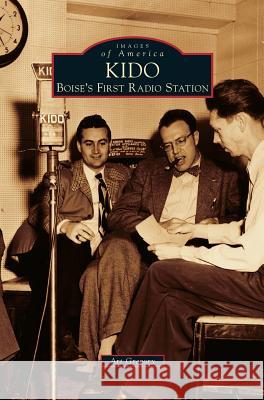Kido: Boise's First Radio Station » książka
Kido: Boise's First Radio Station
ISBN-13: 9781531664244 / Angielski / Twarda / 2012 / 130 str.
The origins of KIDO date back to 1920 and the experimental radio station 7YA at Boise High School. In 1922, chemistry teacher Harry Redeker was granted a limited-commercial license and the call letters KFAU. Redeker left the school in 1927, and in 1928, the Boise Independent School District sold KFAU to Frank L. Hill and C.G. Phillips, who changed the station's call letters to KIDO. Over the next 30 years, "Kiddo" Phillips and his wife, Georgia, achieved many "firsts" in Idaho broadcasting, including securing NBC as the state's first network affiliation. In 1942, Curt G. Phillips suddenly passed away. Georgia remarried and became Georgia Davidson, going on to build KIDO-FM and KIDO-TV, which were both among the first in the state. In 1959, she sold KIDO Radio to William E. Boeing Jr. of Seattle, who owned KIDO for the next 17 years. It is this period of KIDO's rich history, from 1920 to 1976, that this book will cover.
The origins of KIDO date back to 1920 and the experimental radio station 7YA at Boise High School. In 1922, chemistry teacher Harry Redeker was granted a limited-commercial license and the call letters KFAU. Redeker left the school in 1927, and in 1928, the Boise Independent School District sold KFAU to Frank L. Hill and C.G. Phillips, who changed the stations call letters to KIDO. Over the next 30 years, "Kiddo" Phillips and his wife, Georgia, achieved many "firsts" in Idaho broadcasting, including securing NBC as the states first network affiliation. In 1942, Curt G. Phillips suddenly passed away. Georgia remarried and became Georgia Davidson, going on to build KIDO-FM and KIDO-TV, which were both among the first in the state. In 1959, she sold KIDO Radio to William E. Boeing Jr. of Seattle, who owned KIDO for the next 17 years. It is this period of KIDOs rich history, from 1920 to 1976, that this book will cover.











